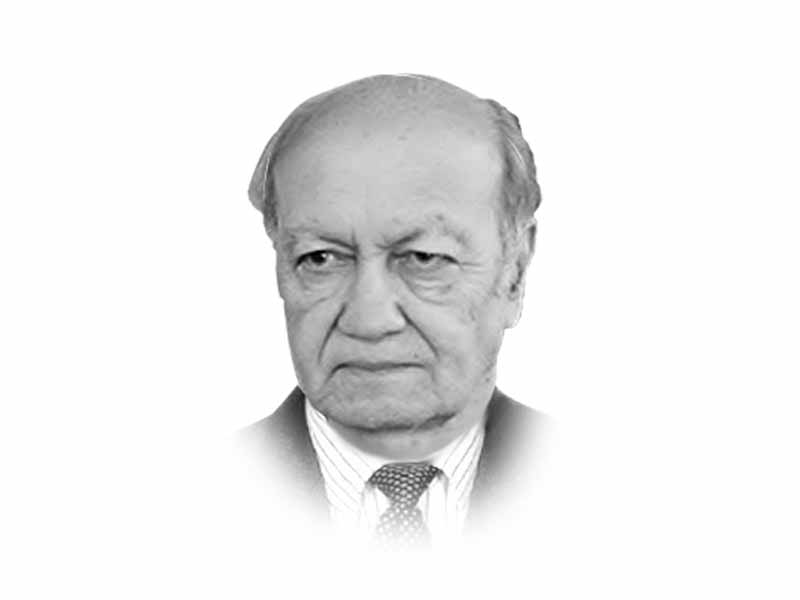
What we have learnt over the years is that how power is acquired is equally important for political consolidation and stability. In Pakistan, unfortunately there is no-holds-barred. Politicians to gain power are setting a highly negative trend by basing their entire politics on attacking their opponent’s person. They rarely discuss serious national issues or are interested in formulating policies as is expected of a democratic government. Whereas some politicians would go to any length to debase their opponent setting a bad precedent and causing great harm to society. Not realising that they are inculcating the culture of hate in their party workers and even beyond. The casual attitude and poor attendance of MNAs in Parliament reflect their lack of interest in national policies and legislation. The public is watching this indifference and their disaffection with the system and leadership continues to grow. If this failing was not corrected, then the ordinary citizen would be justified in blaming the leaders and the system.
Furthermore, promoting the culture of dharna and street agitation has taken away the focus from Parliament. And after every election where a political party has lost it has cried foul for months instead of accepting the results gracefully. What is apparent and matter of deep concern that the Pakistan society and politicians are becoming generally more radical in their behaviour, increasingly hostile towards their opponents and displaying scant respect for law. The efforts to build a coalition of diverse political parties to oust the PML-N reflect this attitude.
It is surprising that despite our experience of military rule there are voices that keep supporting technocratic or military rule. Not realising that more and better quality democracy is what Pakistan needs for which the responsibility rests with major state institutions. Equally disconcerting is that majority of the people do not trust the government and even if it does something right, look at it with suspicion. Similarly with state institutions pursuing independent policies sometimes conflicting in direction are adversely impacting on the overall national power. If we look at it from a democratic perspective, it is indeed a complex and troubling development. People would be justified in assuming that our political system is deeply flawed and little effort is being made to put it on the right course.
Instead what we are witnessing is assault on the authority and the government hardly in control. There could not have been a worst spectacle of its helplessness that was evident while facing last month’s sit-in by the Tehreek-e-Labbaik Ya Rasool Allah (TLYR). It was indeed ironic and intriguing that the PML-N that has always courted religious right was on the receiving end from the hard-line Barelvi group. But if recent revelations about Captain Safdar’s payment to TLYR to stage the demonstrations is to be believed it shows to what extent our benighted leaders can stoop low. It is no wonder that the COAS had advised both parties to settle matters on their own.
Last year’s revelation that politicians and influential persons in Pakistan have stacked their fortunes in Panama was a major setback to their image and prestige. If this could lead to corrective measures by the state in reducing corrupt practices it would be beneficial in the long term. It is important that a concerted effort is made at the international level that these hideouts lose their privacy. Pakistan’s major political institutions that ought to be the pride of any country need major reforms and improved performance to earn back trust of the nation.
There is, however, hope that Pakistan could overcome its present weaknesses if there is resolve on the part of the government. In the last few years due to a very vibrant media and emerging civil society the political parties, government departments and even judiciary are more open to public interaction. In order to build on it the next government should be more responsive to people’s basic needs. It should undertake necessary reforms, empowering people in more ways to reverse the current state of decline. For certain, if things continue as they are we would never recover from our slumber.
One had also hoped that in 2017 with elections only months away political parties would move towards strengthening democracy through coalition with progressive forces. On the contrary, there are disturbing trends like overtures by Mr Zardari towards the PAT or PTI’s electoral alliance with the JUI(S) whose leader is known as the ‘father of Taliban’. These moves smack of opportunism of the highest order and reflect adversely on the direction and priorities of the political parties. It also demonstrates the hold of elitists and self–serving groups in the power structure of our political parties. It is a combination of these factors that has largely contributed in bringing the situation to this pass.
If we look back at our history, dysfunctional democratic governments discredited democracy and facilitated ambitious generals to seize power. The current domestic and international environment is not supportive of dictatorial regimes. But when civilian governments under-perform and lose the confidence of the masses, reliance on non-elected institutions like the judiciary, military and media increases exponentially.
Pakistan has been no stranger to these unfortunate developments in the past and presently is facing a similar situation. What it requires that those wielding power embrace their responsibilities and improve performance. Failing to do so will result in making a mockery of democracy and weakening the state even further.
Published in The Express Tribune, December 13th, 2017.
Like Opinion & Editorial on Facebook, follow @ETOpEd on Twitter to receive all updates on all our daily pieces.












COMMENTS (3)
Comments are moderated and generally will be posted if they are on-topic and not abusive.
For more information, please see our Comments FAQ